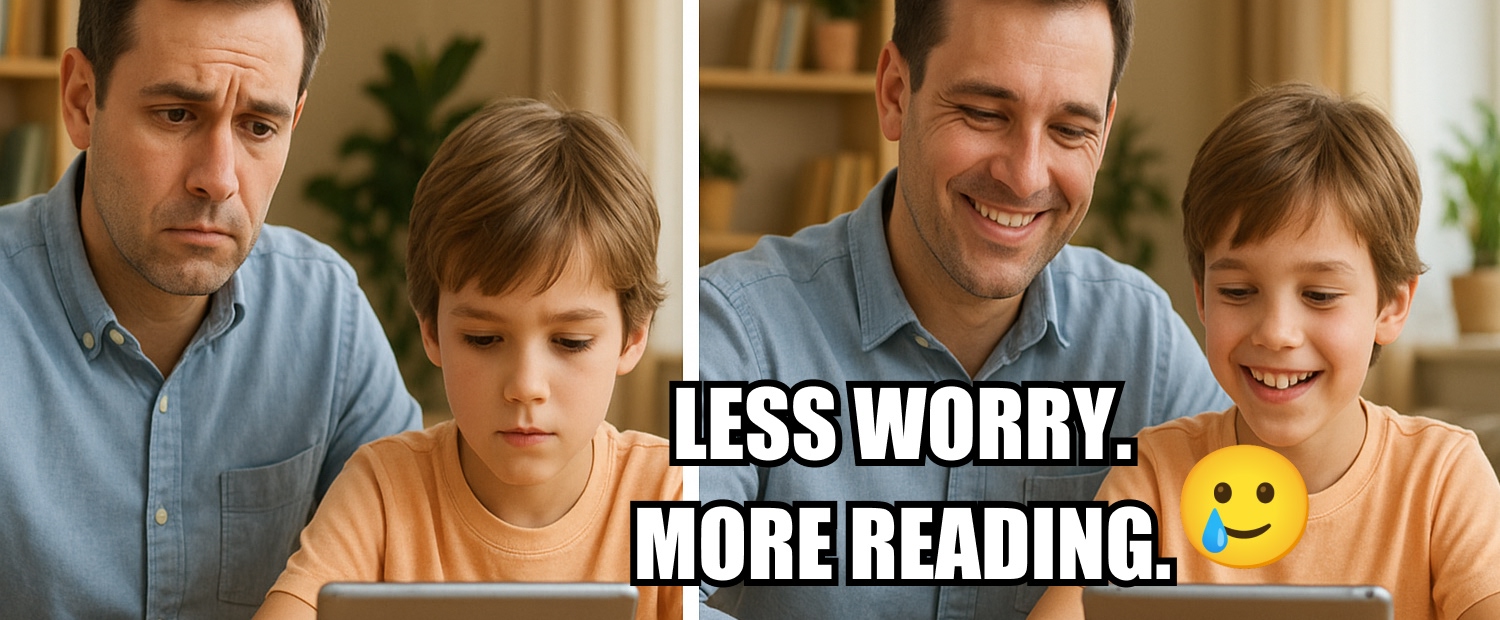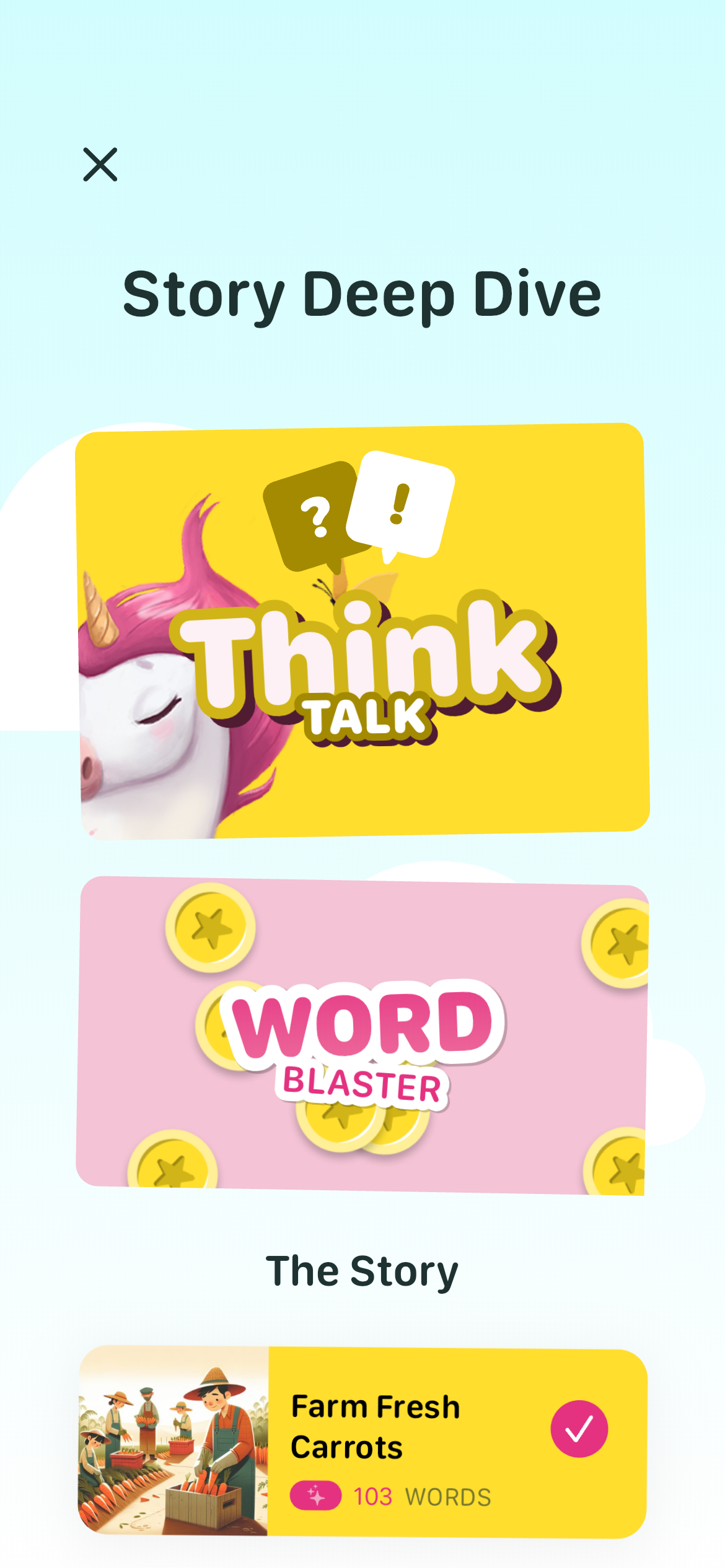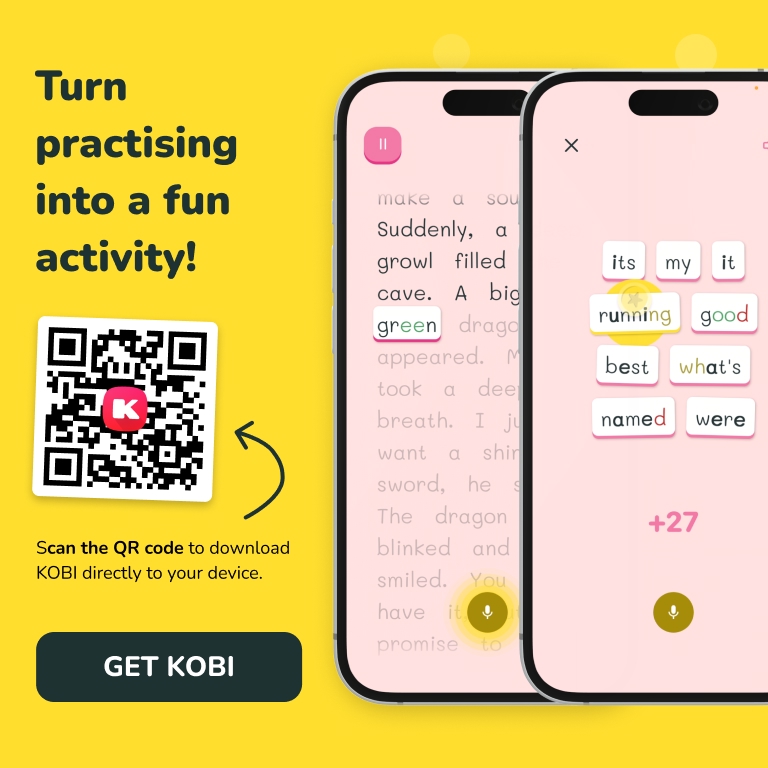Summary: What You’ll Learn in This Article
- Why reading pace varies widely among children (and why that’s normal)
- How the Science of Reading supports individualized progression
- How KOBI encourages steady, confidence-building reading
- Tools like Snap-a-Story, Pictionary, TapTap, and ThinkTalk that adapt to your child’s pace
- Reflection prompts to help parents reframe “slow” progress positively
Fast Isn’t Always Better
Ever worry your child is “behind” because they read slowly? Here’s the truth: slow reading isn’t failure – it’s focus.
Some kids need more time to decode, connect, and truly understand. Speed comes later. What matters most is accuracy, confidence, and joy in the process. When reading feels steady instead of rushed, children build a foundation that lasts.

Why Slow Reading Is OK: Science Says So
The Science of Reading shows that:
- Accuracy precedes fluency: Kids must read words correctly before they can read them quickly.
- Rereading and repetition support automatic word recognition (Ehri, 2005).
- Individual pacing helps kids internalize language patterns without stress.
- Fluency grows in layers: accuracy → automaticity → smooth, confident reading.
So, if your child reads slowly, it’s not a setback – it’s a stepping stone.

How KOBI Supports Reading at Their Own Pace
Step 1: Choose Bite-Sized Reads
Snap-a-Story lets your child decide how long the story will be. From quick reads to longer adventures, they stay in control – making reading feel manageable and personalized.

Step 2: TapTap for Support
Instead of stumbling or guessing, kids can use TapTap for instant word help. Two taps and they’re back on track – no stress, no pause.
Step 3: Use Pictionary for Quick Clarity
Tricky words unlock bright images, friendly definitions, and example sentences – helping meaning stick without rushing.
Step 4: Reflect with ThinkTalk
After reading, ThinkTalk sparks a short, voice-guided conversation about the story. Reflection deepens comprehension and builds confidence – at a pace that feels right.
Step 5: Play WordBlaster for Gentle Reinforcement
After a session, WordBlaster reviews the exact words they saw, reinforcing mastery in a game-like way.
Step 6: Track Gentle Growth
KOBI’s session reports show steady progress: more words read, fewer prompts, smoother fluency. Even small wins count.
Step 7: Celebrate Their Rhythm
There’s no race in KOBI – just steady growth at your child’s own pace. Success is measured by progress, not speed.
Tips for Parents: How to Embrace a Slower Pace
- Praise accuracy before speed: “I love how carefully you sounded that out.”
- Break reading into smaller chunks and revisit later.
- Let them reread favorite Snap-a-Story texts for fluency practice.
- Use session reports to highlight small wins over time.
- Ask reflective questions: “What felt easier today than last time?”
- Build relaxation into reading: cozy spots, no timers, no pressure.
Why Homeschoolers Love the Slow-and-Steady Approach
- Builds mastery without stress or comparison
- Fits flexible homeschool schedules naturally
- Encourages independence and self-paced learning
- Reinforces that growth matters more than speed

Reading Practice Doesn’t Have to Be a Race
Fast reading isn’t the goal – strong reading is. With KOBI, slowing down becomes part of building skills that last.
Your child’s pace is the right pace.
Key Takeaways
- Reading slowly builds accuracy, confidence, and comprehension
- KOBI tools adapt to each child’s pace with scaffolds like TapTap, Pictionary, and ThinkTalk
- Snap-a-Story and WordBlaster encourage gradual growth
- Progress reports show steady improvement, even in small steps
- Parents value mastery over speed, and KOBI makes that possible


